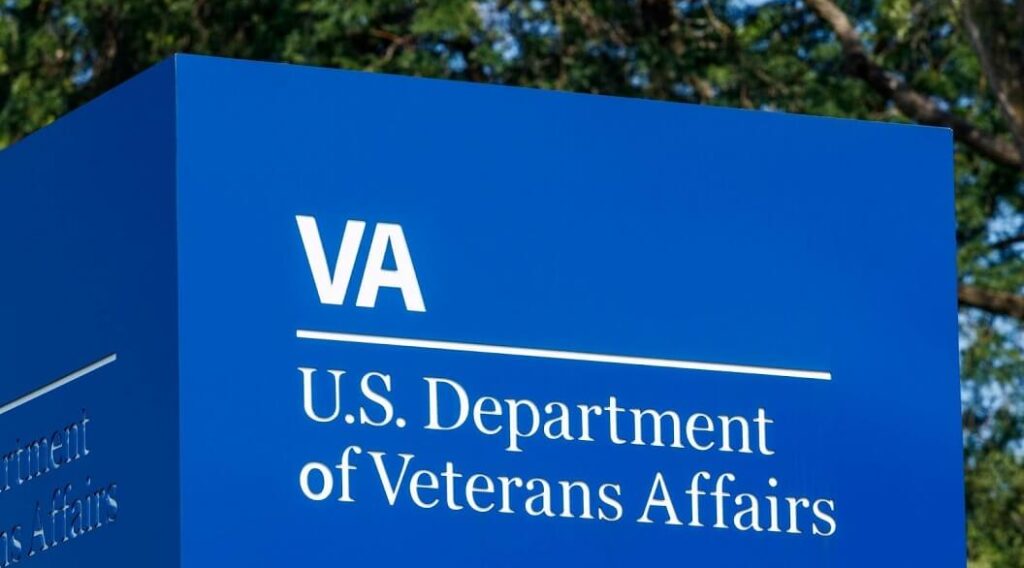Military divorce is subject to state and federal law, which means spouses must follow certain provisions that may not be present in non-military divorce. For instance, either spouse may be awarded benefits in a military divorce, and they must adhere to conditions set forth by state and federal law.
A Fairfax divorce attorney at Select Law Partners PLLC has the experience you’ll need to guide you through the many complexities of military divorce.
 To learn more about how we can help you, use our online contact form or call us at (855) 541-4867 to schedule a consultation.
To learn more about how we can help you, use our online contact form or call us at (855) 541-4867 to schedule a consultation.
 If you live in government or military housing on or off base, in most cases both spouses will be able to stay for a certain amount of time while new housing accommodations are sought.
Ultimately, depending on the circumstances, the service member or federal employee spouse might be able to continue living in military housing, but the non-service member or non-federal employee spouse will not. It’s critical to speak with a military and federal employee divorce lawyer in Fairfax to learn how your housing might be affected, especially if you have children.
If you live in government or military housing on or off base, in most cases both spouses will be able to stay for a certain amount of time while new housing accommodations are sought.
Ultimately, depending on the circumstances, the service member or federal employee spouse might be able to continue living in military housing, but the non-service member or non-federal employee spouse will not. It’s critical to speak with a military and federal employee divorce lawyer in Fairfax to learn how your housing might be affected, especially if you have children.
 The Uniformed Services Former Spouse Protection Act (USFSPA) outlines additional requirements to be met for a service member’s pension, including that it’s treated as property. As a result, the spouse may be eligible to receive a portion of that pension.
A skilled and knowledgeable Fairfax family law attorney from Select Law Partners PLLC will guide you through the intricacies of dividing these benefits and retirement plans and will ensure that any applicable former spouse or dependent benefits are included in the final judgment.
The Uniformed Services Former Spouse Protection Act (USFSPA) outlines additional requirements to be met for a service member’s pension, including that it’s treated as property. As a result, the spouse may be eligible to receive a portion of that pension.
A skilled and knowledgeable Fairfax family law attorney from Select Law Partners PLLC will guide you through the intricacies of dividing these benefits and retirement plans and will ensure that any applicable former spouse or dependent benefits are included in the final judgment.
 Generally, any assets or accounts either spouse had upon entering the marriage or that were acquired during the marriage by gift, inheritance, or bequest, or anything purchased with money from an inheritance or gift, is that spouse’s separate property and will remain their separate property upon divorce.
This might change if the asset was commingled with marital assets or if title of the property was transferred into joint property. Similarly, in general terms, any property obtained during the marriage is presumptively marital property which will be divided equitably upon divorce.
Marital debts are generally any debts that were acquired during the marriage, although some post-separation debts can also be considered marital if they are for reasonable living expenses or attorney’s fees.
After the determination of the class of each asset and debts has been made, the “equitable division” principle comes into play. Because it’s not necessarily an equal split, these are some of the factors the court will consider:
Generally, any assets or accounts either spouse had upon entering the marriage or that were acquired during the marriage by gift, inheritance, or bequest, or anything purchased with money from an inheritance or gift, is that spouse’s separate property and will remain their separate property upon divorce.
This might change if the asset was commingled with marital assets or if title of the property was transferred into joint property. Similarly, in general terms, any property obtained during the marriage is presumptively marital property which will be divided equitably upon divorce.
Marital debts are generally any debts that were acquired during the marriage, although some post-separation debts can also be considered marital if they are for reasonable living expenses or attorney’s fees.
After the determination of the class of each asset and debts has been made, the “equitable division” principle comes into play. Because it’s not necessarily an equal split, these are some of the factors the court will consider:
 To learn more about how we can help you, use our online contact form or call us at (855) 541-4867 to schedule a consultation.
To learn more about how we can help you, use our online contact form or call us at (855) 541-4867 to schedule a consultation.
Residency requirements for a military divorce
The residency requirements for filing for a military divorce are fairly straightforward: at least one spouse must either reside in Virginia or be stationed in the Commonwealth for at least six months, even if you don’t intend to stay. Even service members or spouses stationed outside the U.S. may fulfill the residency requirement for Virginia. A spouse may meet the residency requirement if Virginia was their most recent U.S. residence and they have only gone to one duty station outside of the country since living in the state.Protections under the Servicemembers’ Civil Relief Act (SCRA)
In a typical divorce, one spouse “serves” a formal Complaint against the other. The spouse who receives the Complaint must file a responsive pleading, called an Answer, within 21 days, and if they do not, they could lose some of their rights and privileges in the divorce proceeding. However, no divorce can be completed without proper service of the Complaint. Service members are often on missions, deployments, or at training, which can make answering any Complaint difficult or impossible for a service member in the requisite time period. In the past, this left many service members in shock when they returned from overseas only to discover that their spouse divorced them while they were away. Luckily, the Servicemembers Civil Relief Act (SCRA) provides protections for defendants who are actively serving in any branch of the U.S. Armed Forces, and who have been served with a Complaint. These protections are in place to allow service members to actively represent their interests in any civil actions filed against them. Some of the protections include such things as the following:- The judge presiding over the case can’t make any rulings until first appointing an attorney to represent the defendant. That attorney is also known as a guardian ad litem and will then be responsible for contacting the service member and representing them during the action filed with the Court.
- The Court may stay the proceedings for at least 90 days, or longer in certain circumstances, before entering any type of judgment either at the request of the service member or on its own motion.
Issues unique to military and federal divorce
A military divorce and divorces for federal employees involves a lot of issues that don’t exist in a conventional divorce. Here are just a few to consider and discuss with a Select Law Partners PLLC family law attorney.Housing
There are many rules and requirements governing military housing for both spouses, some of which also apply to federal employees who are living overseas and residing in government housing. If you live in government or military housing on or off base, in most cases both spouses will be able to stay for a certain amount of time while new housing accommodations are sought.
Ultimately, depending on the circumstances, the service member or federal employee spouse might be able to continue living in military housing, but the non-service member or non-federal employee spouse will not. It’s critical to speak with a military and federal employee divorce lawyer in Fairfax to learn how your housing might be affected, especially if you have children.
If you live in government or military housing on or off base, in most cases both spouses will be able to stay for a certain amount of time while new housing accommodations are sought.
Ultimately, depending on the circumstances, the service member or federal employee spouse might be able to continue living in military housing, but the non-service member or non-federal employee spouse will not. It’s critical to speak with a military and federal employee divorce lawyer in Fairfax to learn how your housing might be affected, especially if you have children.
Child custody
Child custody issues can often be a concern in all divorces, but military and federal employees tend to have certain circumstances that apply only to them. In every divorce, civilian or military, the judge will issue rulings based on what they believe is in the child’s best interests as outlined in state law. Some of the things considered in every custody case are:- If the parents should share joint legal custody or if one parent should have the sole decision making responsibilities for the child.
- If physical custody should be joint or if one parent should have primary physical custody and the other parent should have visitation.
- One parent may receive sole custody, meaning they have all responsibilities for the physical care of the child, and they will also make all decisions. While the other parent may have visitation rights, they won’t have any say regarding any sort of decision making.
- If the service member parent is awarded custody, the judge might need to consider if it’s best for the child to stay wholly or primarily with that parent’s family during a deployment.
- If the service member will be stationed in the same area for a substantial amount of time or if they will be moving every few years.
- Relocation cases are very common in military and federal employee cases whereas in civilian cases this may never be an issue to be addressed.
Dividing military/government benefits
Federal employees and military members have pension plans and additional benefits that are different from those in the private sector. There’s even differences between dividing benefits of a military member and those of a federal employee. There are two main categories of federal plans: the Civil Service Retirement System and the Federal Employees Retirement System. There are several complex rules that determine how funds from either one of these plans are divided in the event of a divorce. The Uniformed Services Former Spouse Protection Act (USFSPA) outlines additional requirements to be met for a service member’s pension, including that it’s treated as property. As a result, the spouse may be eligible to receive a portion of that pension.
A skilled and knowledgeable Fairfax family law attorney from Select Law Partners PLLC will guide you through the intricacies of dividing these benefits and retirement plans and will ensure that any applicable former spouse or dependent benefits are included in the final judgment.
The Uniformed Services Former Spouse Protection Act (USFSPA) outlines additional requirements to be met for a service member’s pension, including that it’s treated as property. As a result, the spouse may be eligible to receive a portion of that pension.
A skilled and knowledgeable Fairfax family law attorney from Select Law Partners PLLC will guide you through the intricacies of dividing these benefits and retirement plans and will ensure that any applicable former spouse or dependent benefits are included in the final judgment.
Child and spousal support
Child and spousal support are generally largely contentious issues in a civilian divorce, but they can become more complicated in a military divorce due to the additional benefits received by service members such as BAH and BAS. An additional complication might arise if the non-service member spouse hasn’t worked due to the frequent relocations and the need to be home with the children during the service member’s deployments, all which might have affected their employability and job history. The court will use statutory guidelines when determining how much child support a service member will have to pay. Spousal support is not determined by a statewide guideline – with the exception of temporary spousal support – but rather it is determined by factors that determine the payee’s need versus the payor’s ability to pay. The main factors of calculating child support are income of the parties, the cost of work-related childcare by either parent, the cost of medical insurance for the children, and the percentage of custodial time each parent spends with the children. In determining how much spousal support should be paid, if it should be paid at all, and how long it should be paid, the court will weigh and consider several factors, including:- Each spouse’s income;
- Each spouse’s financial needs;
- The length of the marriage;
- The standard of living during the marriage;
- Whether or not there are children;
- Whether or not a spouse sacrificed their earning potential or career to support the other spouse or the children; and
- How property is divided between the parties
Marital property
State law requires that marital property be distributed in an equitable manner – which does not necessarily mean in an equal manner. The USFSPA governs how military retirement, insurance, and benefits may be treated in a divorce. The distribution of non-military property, accounts, assets, and debts in an equitable manner depends on the classification of the property as either marital, separate, or part-marital and part-separate. Generally, any assets or accounts either spouse had upon entering the marriage or that were acquired during the marriage by gift, inheritance, or bequest, or anything purchased with money from an inheritance or gift, is that spouse’s separate property and will remain their separate property upon divorce.
This might change if the asset was commingled with marital assets or if title of the property was transferred into joint property. Similarly, in general terms, any property obtained during the marriage is presumptively marital property which will be divided equitably upon divorce.
Marital debts are generally any debts that were acquired during the marriage, although some post-separation debts can also be considered marital if they are for reasonable living expenses or attorney’s fees.
After the determination of the class of each asset and debts has been made, the “equitable division” principle comes into play. Because it’s not necessarily an equal split, these are some of the factors the court will consider:
Generally, any assets or accounts either spouse had upon entering the marriage or that were acquired during the marriage by gift, inheritance, or bequest, or anything purchased with money from an inheritance or gift, is that spouse’s separate property and will remain their separate property upon divorce.
This might change if the asset was commingled with marital assets or if title of the property was transferred into joint property. Similarly, in general terms, any property obtained during the marriage is presumptively marital property which will be divided equitably upon divorce.
Marital debts are generally any debts that were acquired during the marriage, although some post-separation debts can also be considered marital if they are for reasonable living expenses or attorney’s fees.
After the determination of the class of each asset and debts has been made, the “equitable division” principle comes into play. Because it’s not necessarily an equal split, these are some of the factors the court will consider:
- The non-monetary and monetary contributions each spouse made to the family during the marriage;
- The non-monetary and monetary contributions each spouse made toward the acquisition and maintenance of property during the marriage;
- The circumstances surrounding the acquisition of the property (how, when and why it was acquired);
- The length of the marriage;
- The tax implications of the distribution of property;
- Each spouse’s health, age, and earning potential; and
- Any other circumstances the court decides is relevant to how the property should be distributed.
Meet our military & federal divorce attorneys
The attorneys and support staff at Select Law Partners, PLLC are highly experienced in the intricacies of military and federal divorces. Here’s a spotlight on two lawyers from our distinguished team: Matthew Kurylo and Sarah Goding.Matthew Kurylo
Matt, a proud veteran and native of the Commonwealth, is passionate about providing the highest-quality representation available to clients in Central and Northern Virginia, including Fairfax. Matt served in the U.S. Marine Corps where he worked with the Office of the Staff Judge Advocate at Camp Lejeune, NC and in Quantico, VA. He earned a B.S. degree from Campbell University, and his J.D. from the University of Richmond School of Law. Matt has earned several different military awards and commendations, including:- Navy and Marine Corps Achievement Medal, August 8, 2001
- Navy and Marine Corps Commendation Medal, November, 1, 2002
- National Defense Service Medal (Bronze Star in Lieu of Second Award), February 18, 2003
- Armed Forces Reserve Medal (with “M” device), February 18, 2003
- Global War on Terrorism Service Medal, November 16, 2004



